News
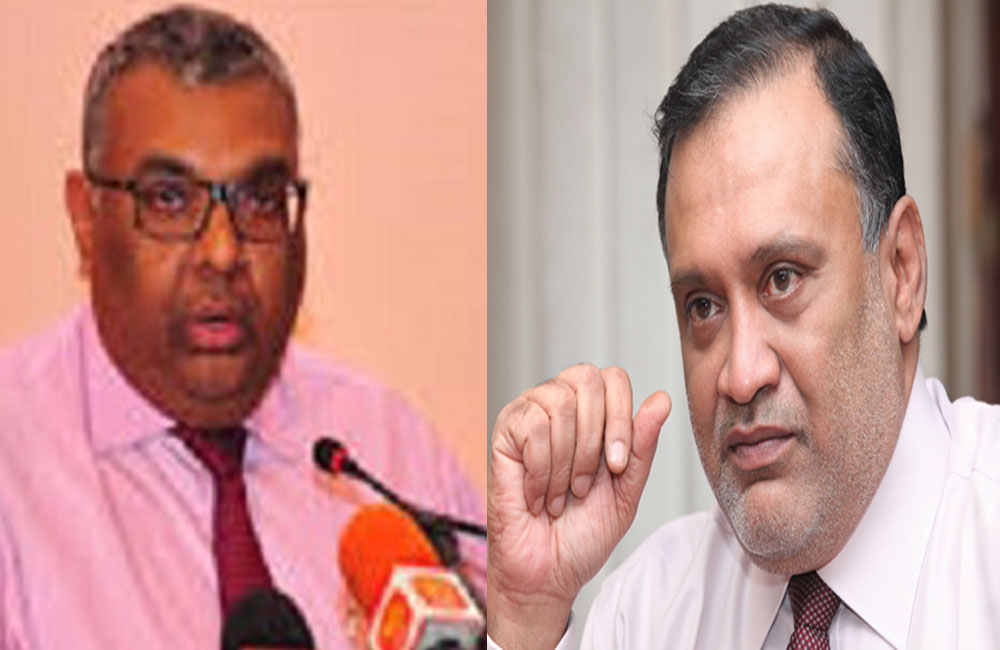
Two high profile heads of public institutions tender resignations
Two High profile heads of public institutions have resigned creating confusion on the immediate future of the country’s export and investment promotion secors, several imminent financial analysts claimed.
They added that the island nation is now moving towards economic dictatorship or one man show at a time when economic challenges need to be jointly managed by the private and public sectors, they pointed out.
The resignation of two leading private sector giants, who tried to move Sri Lanka beyond the devastating impact of COVID-19 and towards people-centric development, was a great loss for the country, they added.
The Export Development Board (EDB) Chairman Prabhash Subasinghe has resigned from his post with immediate effect. This is the second high-profile resignation in the state sector reported this week.
He assumed duties in December 2019 and was charged with the task of strengthening the country's export sector.
Subasinghe has stated that he accepted the post of Chairman for a period of one year only. Therefore, his resignation corresponded with his intention to devote more time to his personal business, sources said.
He said that he was able to do a significant service to exporters during his one year tenure as Chairman and that he is pleased to be able to do such a service even in the midst of the COVID19 epidemic.
BOI head resigns!
Meanwhile, top corporate leader Susantha Ratnayake, who served as the Chairman of the Board of Investment (BOI), also announced his resignation several days ago.
It is learnt that Ratnayake has quit the post citing undue interference from a “higher authority”. However, he has told the media that the resignation was due to personal reasons and he took up the post only for a year.
The appointment of Susantha Ratnayake was one of the first appointments made by President Gotabaya Rajapaksa after assuming office.
Ratnayake has held a number of high-ranking positions in the corporate sector including the Chairmanship of Sri Lanka's premier blue chip company, John Keells Holdings.
With over 30 years of management experience, Ratnayake served as Chairman and CEO of John Keells Holdings PLC from January 2006 to December 2018. He has been a member of its Board of Directors since 1992/93.
In addition, a number of institutions and companies, including the Ceylon Chamber of Commerce and the Ceylon Tea Board, have been successful under his guidance in recent times.

Employers express concerns over budget proposals
Business owners has raised concerns over the compulsory retirement age for private sector employees by amending the Employees’ Provident Fund (EPF) Act, the introduction of a Social Security Fund as well as implementing a daily wage of LKR 1,000 for the plantation workers.
The Employers Federation of Ceylon (EFC), the unofficial trade union of employers, in a circular to members noted that the EFC's policy relating to determining retirement age of private sector employees as well as wages are well established and considers many factors including sustainability of companies. “For instance, it has been our position that the issue of retirement age should be determined by parties and agreed contractually, allowing many related issues such as affordability, ability to work, health and safety of employees as well as matters relating to their wishes – e.g. on how superannuation benefits should be enjoyed – to be considered,” it said.
The EFC said it long opposed mandating of wages for the private sector – other than determining minimum rates of wages, again through ‘tri-partite processes’ – as it cuts across the principles of determining wages based on market forces and employee involvement including Collective Bargaining. “The workers of Regional Plantation Companies (RPCs) – in respect of whom the authorities are trying to intervene in this instance– have long standing collective agreements in place which are applicable for the entire industry and considered as a ‘model’ by the International Labour Organization.
Whilst such matters are best addressed by the stakeholders themselves, ad hoc interventions are likely to have serious consequences for all employers and the national economy, especially at times like the present,” it said.
It sought an urgent meeting of the tripartite body – the National Labour Advisory Council to discuss these contentious proposals
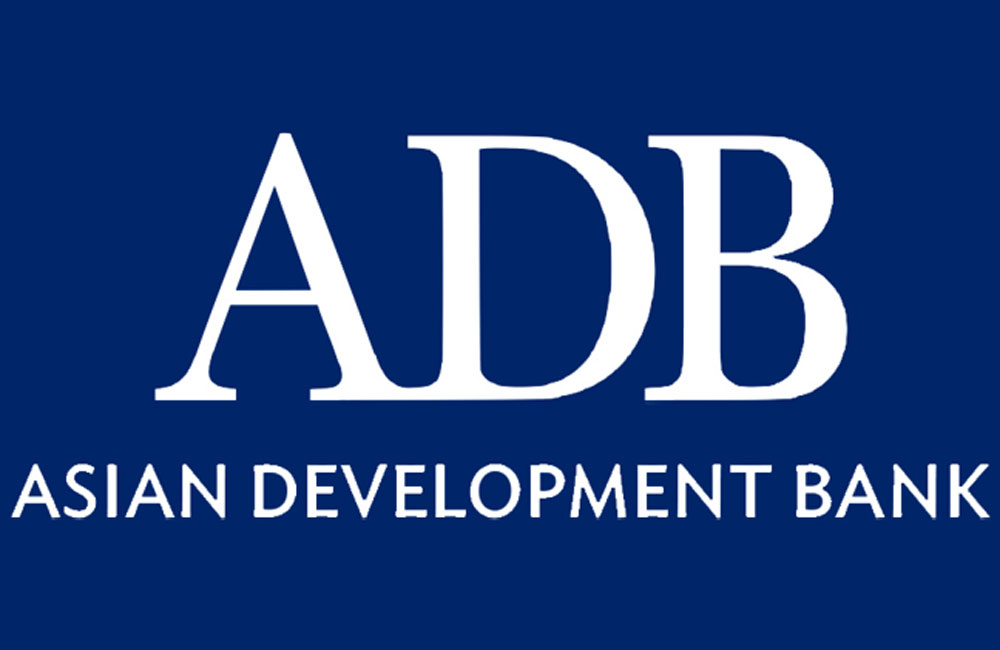
$400 million ADB loan for secondary education reforms
Sri Lanka has received approval for a USD 400 million loan from the Asian Development Bank (ADB) to support the transformation of Sri Lanka's secondary education system to align with the demand for highly skilled and agile workers who can compete in a rapidly changing global economy.
Sri Lanka aspires to be an advanced knowledge economy and has targeted education and skilled labor as national priorities.
The Secondary Education Sector Improvement Program will support reforms under the government’s General Education Sector Development Plan, 2020–2025, particularly on upper secondary education. The program will benefit about 953,000 students annually, with skills that will benefit successive generations of students.
The program will equip the young population with knowledge and skills in science, technology, engineering, and mathematics (STEM), and commerce, which are fields of high economic relevance for Sri Lanka.
It will enhance readiness for further education in STEM fields and foster competencies for higher productivity and adaptability.
To achieve this, the program will reform the curricula, instruction, and assessment systems to focus on practical application of knowledge and integrate cognitive and socio-emotional skills ADB said .
The program also focuses on improving teaching quality and teacher training given the importance of quality of teaching and method of instruction on learning.
More than 47,000 upper secondary education teachers will be trained on inquiry-based and interactive learning approaches to increase student interest and engagement with subject content and inspire a love of learning.
“A knowledgeable, agile, and skilled workforce that can leverage technology transfers and steer innovations could support Sri Lanka’s economic diversification and put Sri Lanka on a higher growth path,” said ADB Principal Social Sector Specialist for South Asia Uzma Hoque.
“The aim is to equip students with market-relevant skills and foster competencies that allow them to think critically, apply what they learn and adapt, which are key traits needed to survive and thrive in the modern world of work.”
Learnings from the current situation under the COVID-19 pandemic will be turned into an opportunity for reforms.
The curricula and pedagogy will introduce innovative technology-based teaching and learning approaches and multiple modes of delivery of education to build resilience against future emergencies.
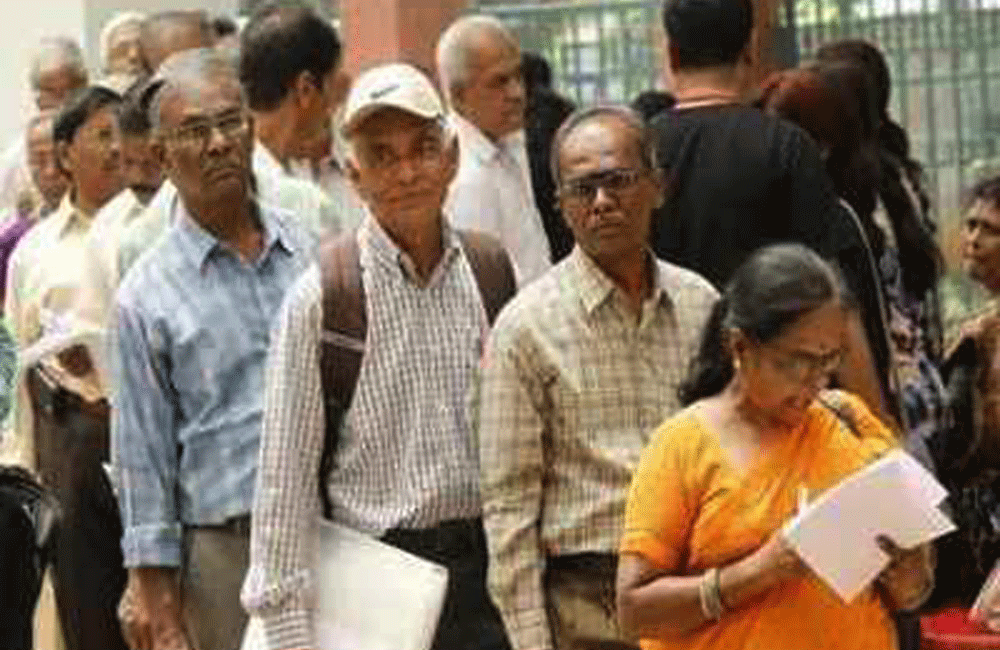
Amendment to EPF Act to extend the retirement age opens can of worms
The government’s proposal to amend the Employees’ Provident Fund (EPF) Act to extend the retirement age of private sector employees both men and women up to 60 years has brought several crucial issues into the limelight.
Finance Minister and Prime Minister Mahinda Rajapaska in his 2021 budget speech said the retirement age of private sector employees would be raised to 60 years based on the life expectancy which is 72 years for men and 77 years for women.
However, it was not clear as to whether the private sector employees are allowed to withdraw their EPF money after the previous retirement age of 55 years if they opt for early retirement.
Although it is a good proposal for the private sector workers, it should be made optional for them obtaining early retirement according to their wish without blocking it until they reach 60 years of age, Anton Marcus – Joint Secretary of the Free Trade Zone and General Services Employees Union told the Business Times.
This proposal should not be another attempt to use private sector employee’s life savings by the state to borrow funds at lower rates to bridge the deficit or any other purposes, he added.
He said that this matter will be brought to the notice of the next Labour Advisory Council (NLAC) meeting which is the tripartite apex body to discuss policy-related labour matters and advise the Minister of Labour.
This move will help the government to block Rs. 500-600 billion of refund money in the EPF to utilise it for public affairs, a financial analyst said.
It could be used to borrow funds from the EPF at low-interest rates, and invest them as well as utilising it for debt repayments, he added.
The EPF represents the largest source of funds for government domestic borrowing, exceeding even the amounts contributed by savings institutions and commercial banks.
As the increase in the working age population and thus the workforce and the growth of the formal sectors result in increased contributions to the Fund, the incentive to remove political interference with the EPF remains low.
As a result, the defined contribution features of the EPF have been seriously undermined and a widening gap has emerged between the notional and actual performance of the EPF over time, an Economic Analysis report revealed.
Earlier there were attempts to compulsorily retire workers at 55 years instead of giving extensions of service till 60 years which was once, the practice.
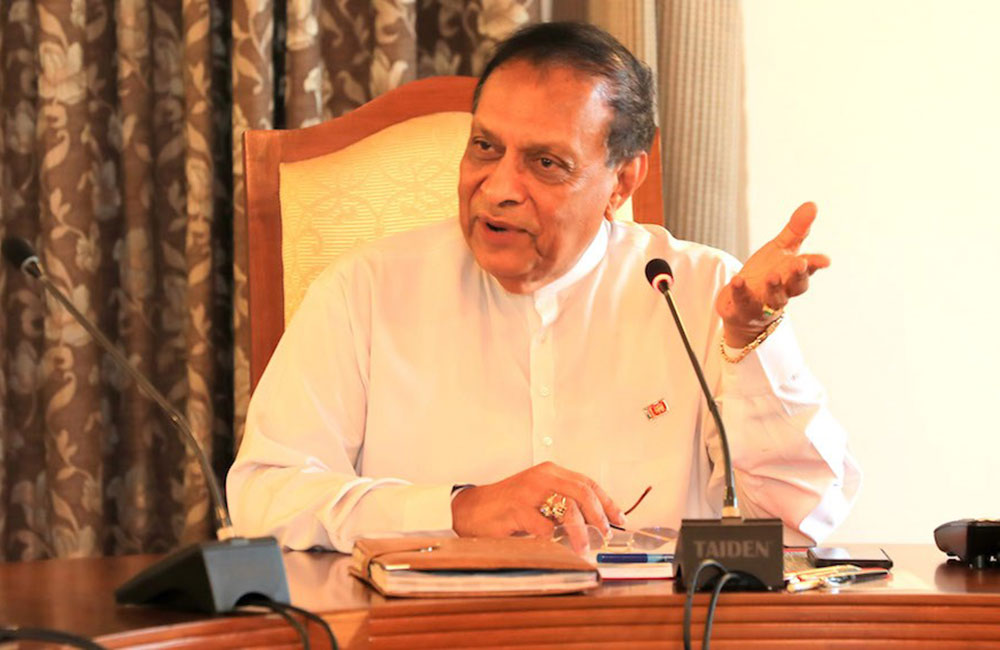
Even with unprecedented powers, Govt. unable to fulfil people's needs: Karu
"As the COVID-19 pandemic rages on, the whole society is under immense pressure today. The situation is deteriorating, especially in Colombo and in the Western Province. The country and her people are helpless. A top government official leading the efforts to control the pandemic says that the entire island has become a high-risk zone," Jayasuriya said.
Jayasuriya said that the people will have to make certain compromises as long as the government ensures their well being.
"What does this show? Have you ever heard of another country that sought solutions after shooting people who have contracted COVID-19?" the former Speaker inquired.
"Although the government touted a 'one country, one law' policy, the politician responsible for the destruction of the royal court of King Buwanekabahu is still at large. Another politician who publicly proclaimed that he will not permit anyone to touch a 'single hair' of the person responsible for the destruction of the royal court challenged the country's rule of law. What was clearly validated by that single incident? That the rule of law has been rendered helpless similar to the plight of the people?" he said.
While reiterating that the National Movement for a Just Society presented these facts with good intentions, they warned the government not underestimate the people of this country.

Coconut industry structural reforms get underway
Sri Lanka’s coconut industry is to undergo structural reforms harnessing the economic potential with incentives provided in the Budget 2021, industry sources said.
The four existing institutions related to the coconut industry will be amalgamated to form a single entity as the “Coconut Cultivation and Allied Industries Development Authority” under an integrated institutional structure.
This will be a key reform in the industry with the merging of Coconut Development Authority (CDA), Coconut Research Institute (CRI), Coconut Cultivation Board (CCB) and Kapruka Trust fund, official sources disclosed.
Industry stakeholders believe that this is an important step towards aligning the state agencies for the purpose of achieving the national vision for the industry.
This will facilitate a coordinated approach to the development of the industry from growing, technical, product development and marketing angles, several coconut-based export product industry leaders told the Business Times.
They welcomed the guaranteed price offered by the government to encourage farmers to cultivate rice, maize, kurakkan, sesame and black Gram, vegetables, fruits and other plantation crops on coconut plantations as a side crop.
It is proposed to provide capital grants of Rs. 150,000 to 10,000 small and medium scale commercial agro entrepreneurs, with agricultural wells to install solar power operated water pumps in order to increase production capacities by harnessing new technology including drip irrigation, they said.
Three major product sectors contributed immensely in achieving good export revenue, they said adding that kernel products – milk, cream, and milk powder and virgin coconut oil, non-kernel coconut husk- based substrates for horticultural applications and coconut shell activated carbon were among them.
While encouraging the growth sectors the country must also have measures in place to retain the country’s market share in the traditional sectors such as desiccated coconut which enjoys a global reputation for high quality and unique Sri Lankan flavour, they pointed out.
Sri Lanka is likely to lose its grip on these markets as at current nut prices, these industries are not competitive with other origins such as Indonesia and Philippines, they warned.
All this success in exports is achieved using only 30% of the country’s total nut production, they added. 70% is consumed locally out of which 30-35 % is wasted in households due to traditional methods of extraction of milk for cooking purposes.
If this waste of the value chain could be addressed through consumer education, and making reliable, convenient and healthy alternatives available to the local consumer the industry stands to benefit immensely increasing the potential of earning foreign exchange for the country, they said
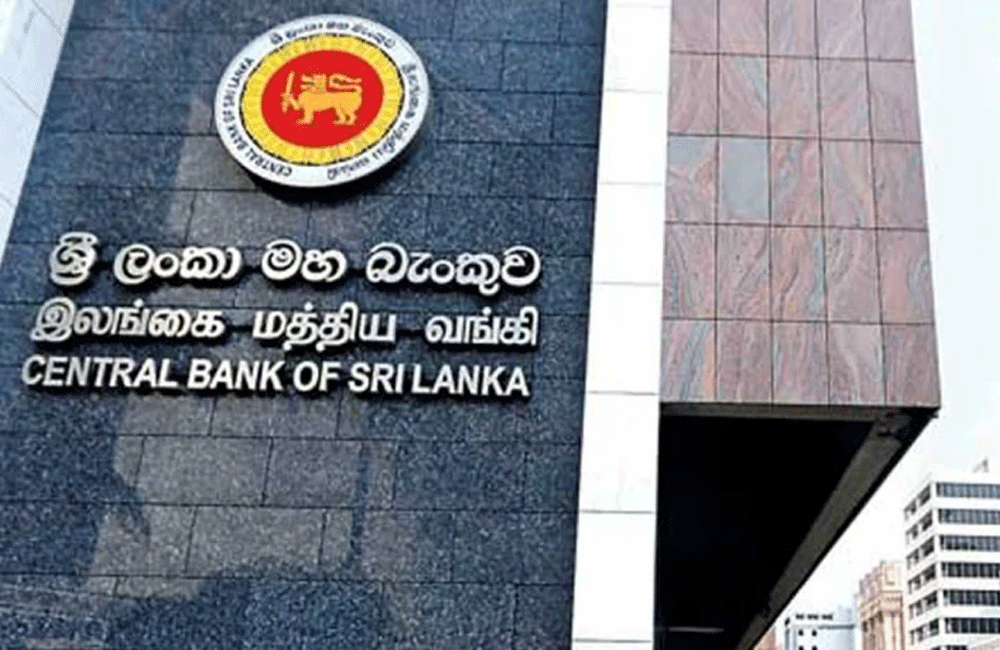
SDA deposits rises to $272 million in six months
"Considering the potential of SDAs to attract a substantial amount of foreign exchange into the country and the resultant positive impact on the foreign currency reserve position of the country and the overall economy, the government has decided to extend the validity period of opening SDAs up to 07 April 2021 on recommendation of the Monetary Board of the Central Bank of Sri Lanka," it added.
In addition, considering the favorable effects of retaining such foreign exchange within the country, GOSL has allowed SDA holders, who wish to keep maturity proceeds of SDAs in Sri Lanka beyond the designated date of maturity, to renew and continue SDAs as normal deposits with Authorized Dealers.
The funds held in SDAs so continued as normal deposits will be eligible only for the interest rates offered by the Authorized Dealers for normal term deposits of the respective banks. Upon maturity, such funds are;
- Freely convertible and repatriable outside Sri Lanka on any future date.
- Permitted to be transferred into an Inward Investment Account or a Personal Foreign Currency Account, if the account holder is eligible to open or currently maintain such an account.
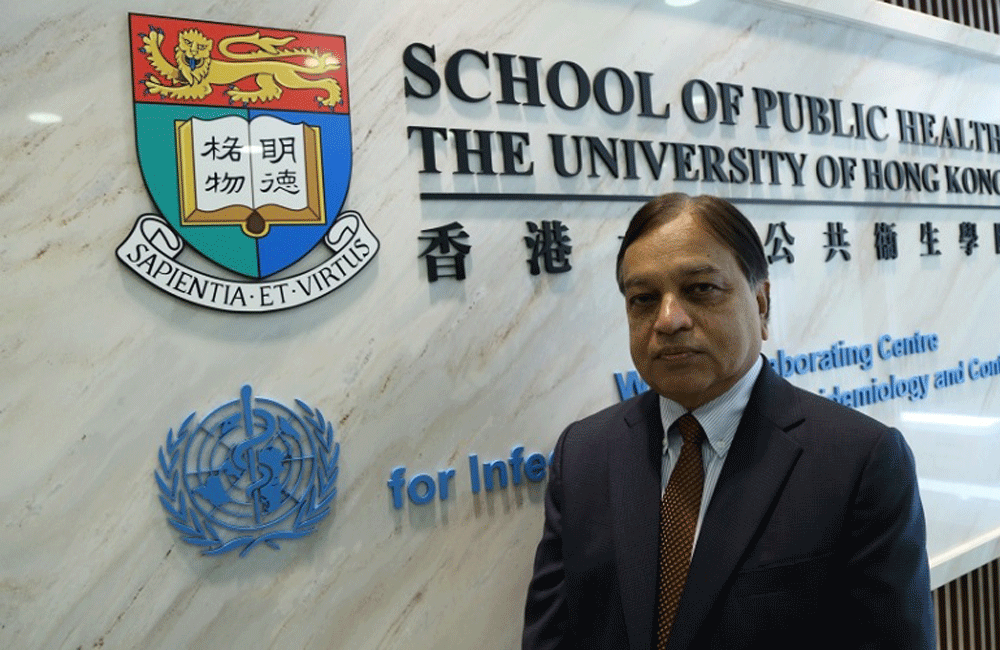
Antigen test the most appropriate method to identify COVID-19 infections – Prof. Malik Peiris
Renowned Sri Lankan pathologist and virologist Professor Malik Peiris says that it is not possible for a COVID-19 infected patient to infect another person with the virus after 10 days from the onset of symptoms. Professor Peiris, the Chair of Virology at the University of Hong Kong, further pointed out that the Antigen test is the most appropriate method to identify infected persons who have the potential to infect another person with the virus.
Professor Peiris, who is currently in Sri Lanka, made these observations while attending a panel discussion recently organised by the Ceylon College of Physicians. He had provided the following responses to several questions put forward to him.
Question: This disease has created great fear and uncertainty among the public. At the same time, the spread of some of the myths created around the virus through social media has made the situation worse. What is the scientific background behind this virus?
Answer: When considering the transmission of the disease, it has been found that 44% of transmissions from an infected person to another person happen before the relevant infected person shows any symptoms. Although the virus could transmit within 3-4 days after that, the ability to transmit the virus rapidly declines after 5 to 7 days.
Question: How is the COVID-19 virus identified? We commonly use PCR tests. How is it carried out? What are the limiting factors of PCR testing?
Answer: When comparing PCR tests and Antigen tests with each other, the ability to identify the nucleic acidity of the virus is relatively high with PCR testing. However, if you want to identify the type of virus that can spread the disease, then the patient must have a very large amount of the virus in their body. The correlation between that and PCR testing is a low one. In other words, every positive PCR test does not mean that everyone has the amount of virus to infect.
Despite the fact that the sensitivity of the Antigen test is lower than PCR test in some manner, it allows to identify patients with high levels of the virus. The correlation between antigen testing and infections is a better one. Although some of the antigen tests used in the early stages were not in good condition, the antigen tests later introduced with the approval of the World health Organization (WHO) can be called very good. We must be able to use both of these types of tests correctly for the relevant purpose.
Question: For whom and at what point should these tests be used?
Answer: Due to the high sensitivity of PCR tests, it is the best choice to diagnose the disease from a patient. At the same time, when you have to make quick decisions and when a facility with PCR testing capabilities is very far away, fast results can be achieved through antigen testing. It gives you a chance to make a decision.
Also, antigen tests are sufficient to identify individuals who are highly infected with the virus, with the aim of reducing the spread of the disease. Because it's fast and it indicates patients with a higher viral load.
Question: Can a patient identified as COVID-19 positive through PCR testing become someone who does not infect another person with the virus? Can you explain this?
Answer: As I said before, the PCR test does not identify the infectious virus components that make up the entire virus. It focusses only on the genetic material of the virus. Even when it has reached a non-infectious level from one person to another, the genetic material of the virus can remain in the patient's body for a long time.
Due to this, the recommendations of the World Health Organization have now been changed. Basically, what they are saying is that patients who are asymptomatic and patients with mild symptoms cannot infect another person after 8-10 days since being infected. So, you do not have to do a PCR test. Even if the PCR test is positive, it does not mean that he can transmit the disease to another person. According to epidemiology and according to studies on identification of close contacts, it has been revealed that the disease is no longer contagious 5-6 days after the onset of symptoms.
Professor Peiris, who received his medical undergraduate training at the University of Peradeniya, is currently a leading virologist in the world. He was elected a Fellow of the Royal Society of London in 2006 and together with his co-workers, he has published more than 600 scientific papers in a research career spanning more than 35 years. He is credited with 32 scientific patents relating to diagnosis of viral infections.
In 2003, he played a key role in the discovery that a novel coronavirus was the cause of severe acute respiratory syndrome, or SARS and in understanding the pathogenesis of this new disease. He also carried out important research on the Middle Eastern Respiratory Syndrome (MERS) Coronavirus outbreak in 2015.
He was awarded the Chevalier de la Légion d'honneur, France (2007), Mahathir Science Award, Akademi Sains, Malaysia (2007) and Silver Bauhinia Star (S.B.S.), Hong Kong SAR (2008).
Prof. Peiris is currently the Chair of Virology and Tam Wah Ching Professor in Medical Science at School of Public Health, The University of Hong Kong.

Inland Revenue Department faces unprecedented cheque bouncing
Sri Lanka’s cheque bouncing due to insufficient funds in payees’ accounts has increased during the past few months as result of loss of income of the middle class, financial analysts claimed.
Cheques totalling a value of around LKR 3 billion that have been given to the Inland Revenue Department (IRD), have been returned from 2016 up to now owing to various reasons mainly Covid-19 crisis, the Inland Revenue Department (IRD) said.
According to official data, a total of 2,600 cheques have been returned within the first six months of this year.
The number of dishonoured cheques received by the Inland Revenue Department (IRD) had risen from 4494 recorded in 2015 to 8060 in June 2019, according to the auditor general’s report.
Taxpayers remit funds to the IRD’s Revenue Collection Account, and once the details on the payments made by taxpayers are furnished by banks, the tax files are updated.
“…it was observed that the internal control systems (of the IRD) for looking into the measures on their settlement and regarding follow up actions were not properly in operation,” the report read.
As a result, Value Added Taxes worth LKR 2.03 billion, Nation Building Taxes worth LKR 427.8 million, and Income Taxes worth LKR 317.8 million were among the revenue lost by the government.
Accordingly, the auditor general has recommended adopting money collecting methods such as bank drafts, other technical payment methods in addition to cheques to address this problem.
He has also recommended suspending bank accounts, suspending or taking over properties of taxpayers, and initiating court action relating to the dishonoured cheques exceeding LKR 500,000 in value.
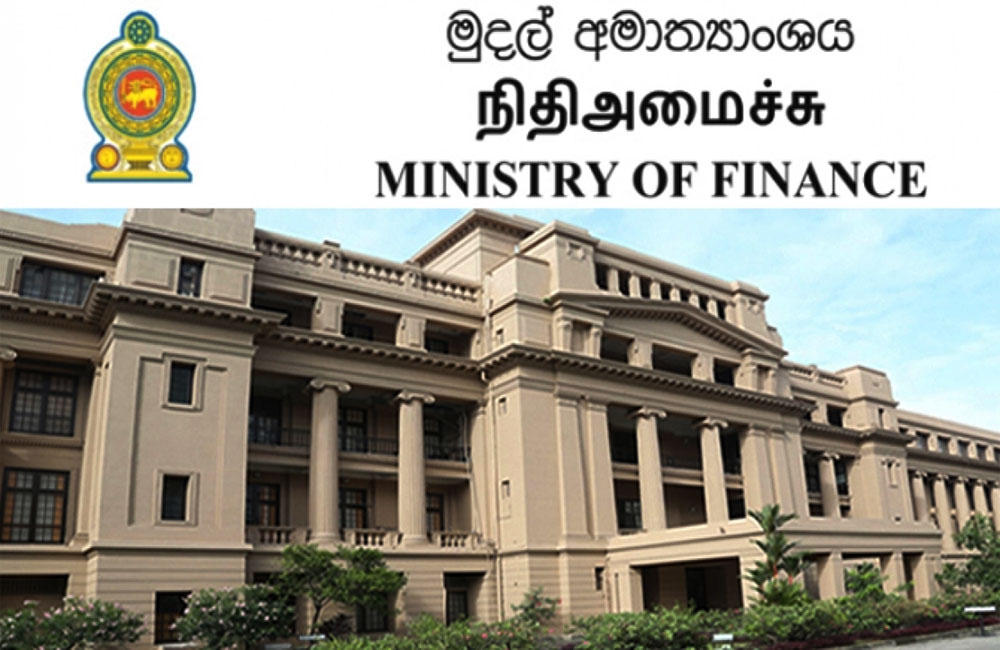
Finance ministry rejects Fitch downgrading of SL ratings
Following the announcement by Fitch Ratings downgrading Sri Lanka’s Long-Term Foreign-Currency Issuer Default Rating (IDR) to 'CCC', the Ministry of Finance has responded saying that the rating action is based on uncorroborated facts sans due consideration given to recent economic and policy developments.
“The Government has rejected to accept this downgrade as it fails to recognise the robust policy framework of the present administration for addressing the legacy issues, including the concerns raised by Fitch Ratings," the Finance Ministry said in a statement.
"We observe, with disappointment, today’s rating action by Fitch Ratings expressing concerns about Sri Lanka’s external debt repayment capacity over the medium-term, financing options and debt sustainability risks.
"These measures were taken, at a time when the newly appointed Government has just announced its medium term policy framework in its Budget 2020. This downgrade by Fitch fails to recognise the robust policy framework of the new Government for addressing the legacy issues, including the concerns raised by the Ratings agency, and ensuring ongoing economic recovery and macroeconomic stability of the country," the Finance Ministry said.
"It is surprising to note that Fitch Ratings’ assessment has ignored several key proposals presented in the Government Budget 2021 with regard to deficit financing in the period ahead, Finance Ministry said, adding that as indicated in the Budget 2021, the Government plans to adopt a novel approach in relation to foreign financing while enhancing the effectiveness of already secured financing channels, aimed at reducing the share of foreign financing of the budget deficit over the medium term.
Related News:
Fitch downgrades Sri Lanka to 'CCC' amid heightened debt sustainability risks
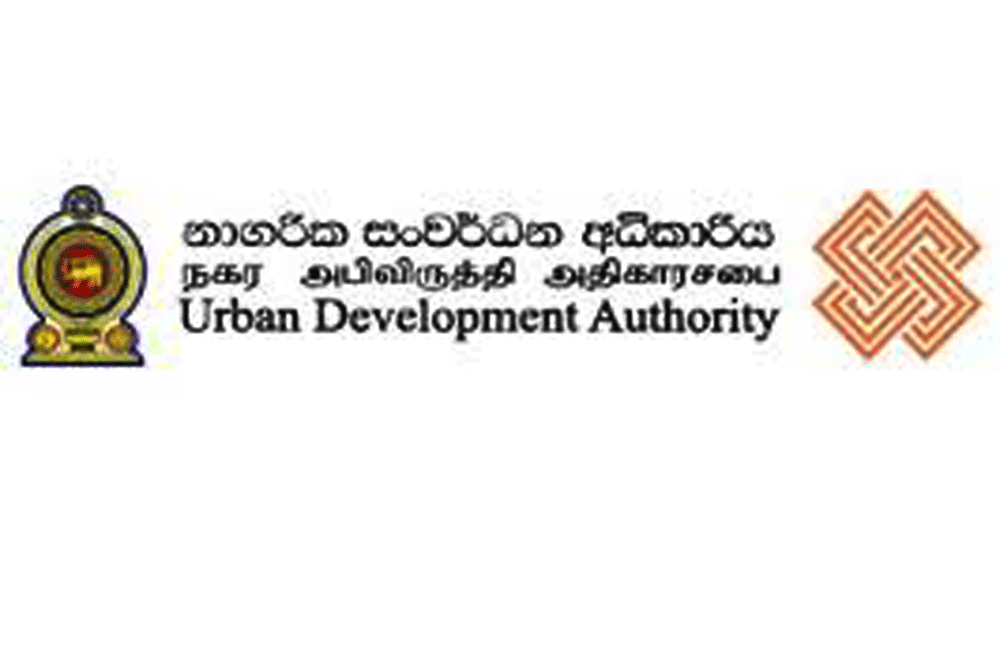
New UDA regulations detrimental to development
The Urban Development Authority (UDA) is seen as grabbing land and planning to take laws into their own hands via the introduction of new regulations, drawing concern from professionals and public interest activists.
The Sri Lanka Engineers Institution (SLEI) strongly objected last week to the attempts made by the UDA to gazette these regulations without entertaining representations from the engineering fraternity. The Institution of Engineers also raised objections.
The new regulations regarding land and building construction coming under the control of the UDA are confusing, a leading public interest activist in this field lamented.
He noted that those UDA regulations with regard to land division plans are impracticable and there was a hidden agenda of such plans.
It is almost the same set of regulations which was rejected by the professionals in 2019 under the previous government and it has been brought again, he alleged.
This was an attempt to divide government and private owned barren lands into blocks of lands countrywide for real estate development and construction of high-rise and other buildings, he disclosed.
He has explained these irregularities in a lengthy letter addressed to the UDA Chairman, Harshan De Silva and copied to Dr. P B Jayasundara, Secretary to the President, Gamini Senarath, Secretary to the Prime Minister and Nimal Perera, Secretary to the Ministry of Urban Development and Housing,
In this letter, the public interest activist, who requested anonymity, stated that there are regulative provisions to execute agreements by the UDA and the National Physical Planning Department (NPPD).
These regulative provisions are applicable countrywide, he pointed out.
The UDA has made an attempt to become the one and only regulator while ignoring the available legal enactments institutions by introducing new regulations which will be gazetted soon, he warned.
The regulative clauses have been drafted without any prerequisites, standards and checks and balances, he said, adding that those are nothing but clear maximization of “corruption” along with the “legalisation” of unofficial corrupt practices. The question of credibility of the new regulations is more serious as the procedure itself is geared to bring back the previous government agendas and thereby fulfill the needs of the vested parties and to result in serious losses to the country, he emphasised

Government hit media with first foul blow by ordering to curtail state advertising
The government seems to have opened up a new battlefront with media by curtailing advertising of state institutions in main stream media institutions amidst plans to introduce laws to regulate social media.
Secretary to the President, Dr. P.B. Jayasundara dealt a severe blow to media by ordering all state institutions and SOEs to immediately suspend their ongoing advertising campaigns.
It is still not clear whether the move is aimed at cutting down expenses in the state sector or an attempt to regulate government in advertising in line with the recent Cabinet decision to allocate 25% of advertising budgets of state-owned entities to state-owned media institutions.
Allocating 25% of government advertising budgets to state-owned media stations is part of the government’s strategy to make the companies less reliant on the Treasury.
However, analysts pointed out that the government’s decision to suspend advertising will deal a deadly blow to the country’s media industry in general.
Except for a few private media companies run by close allies of the government, other media institutions are struggling, as advertising revenue has sharply dropped in the face of the raging pandemic.
Meanwhile, media rights activists have expressed concern over a proposed Singapore-style regulatory framework for Sri Lankan websites purportedly to combat fake news and hate speech online.
Media Minister Keheliya Rambukwella told a Ministerial Consultative Committee on Mass Media last Saturday (21) that the proposed mechanism will be introduced in two weeks. The committee has reportedly studied Singapore’s controversial Infocomm Media Development Authority Act (IMDA) and Protection from Online Falsehoods and Manipulation Act (POFMA), which critics say will be emulated by Sri Lanka’s proposed regulatory framework in its mandate to curb reporting and content that spread falsehoods and incite racism.
Page 237 of 510